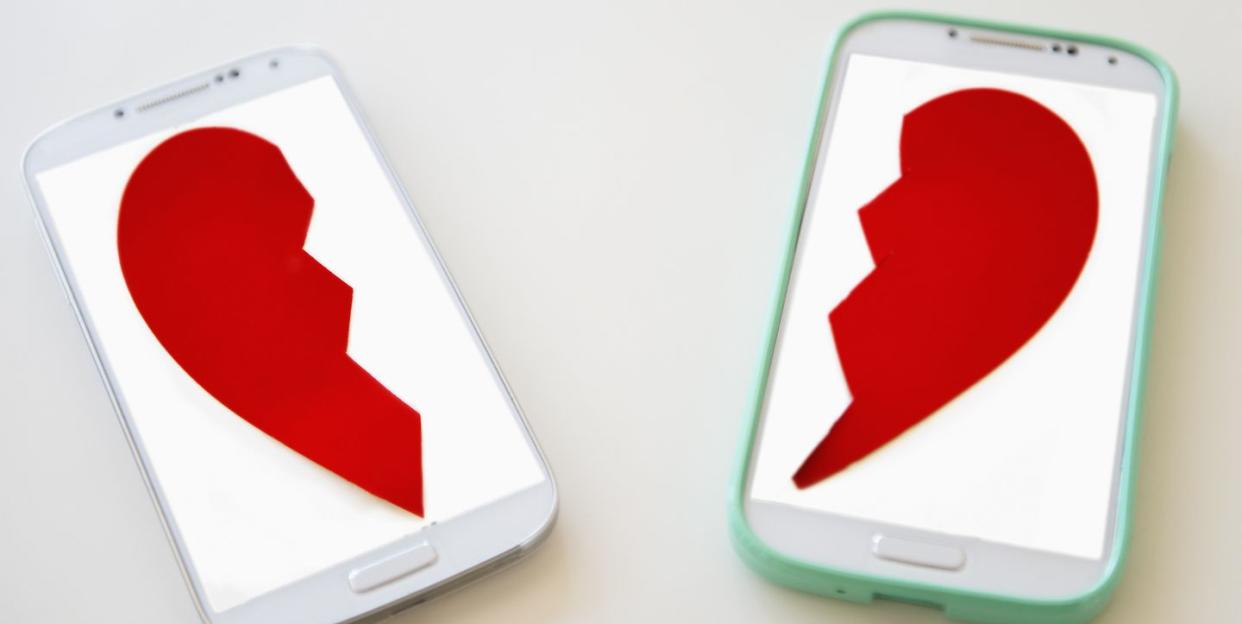West Elm Caleb and the dangers of viral heartbreak

Seen the nickname “West Elm Caleb” swirling around the internet recently? You’re not alone: currently #WestElmCaleb has racked up 52.3 million views on TikTok, spilled over onto Twitter and Instagram, and was even referenced in a TikTok by dating app Keepler and a tweet by Hellmann’s mayonnaise. In short, this guy is everywhere.
But, who even is West Elm Caleb? Well – besides being the internet’s new “couch guy” – we know that he’s based in NYC, works as a furniture designer for the brand West Elm (hence the nickname) and has been accused of everything from ghosting to lovebombing and even, according to one account, sending unsolicited sexual images.
News of his alleged misdeeds began to surface after jewellery designer Mimi Shou posted a TikTok about being ghosted on the NYC dating scene by a man called, you guessed it, Caleb. While this didn’t turn out to be the Caleb that the internet is currently obsessed with, plenty of people started asking if she was referring to “West Elm Caleb” – and so, a TikTok trend was born.
In the coming days, videos started pouring in from women who claimed to have matched with or been on dates with the man in question. Often told in confessional, POV-style video, creators shared details (sometimes with screenshots) of their interactions: from the contents of his dating profile or their messages to one another, to the Spotify playlist he is said to have sent to multiple love interests. Quickly, women online began to paint a familiar picture of a serial dater who not only juggles different women but lies about it, escaping accountability by ghosting before he’s found out.
It goes without saying that it can be extremely hurtful and, as is the case with cyberflashing, potentially damaging to be on the receiving end of these kinds of actions. But particularly in big cities or on apps, where the dating pool seems like a limitless sea of potential connections rather than real people with their own thoughts and feelings, we’ve all come across our fair share of IRL West Elm Calebs.
That’s perhaps why the public descent upon Caleb has been damning and swift – he’s a stand-in for all the people that have done wrong in the dating game. But with his real name and other private details leaked online, he has seemingly deleted all of his social media (including LinkedIn) and the backlash against this man-turned-meme has already been compared to the noughties revenge comedy John Tucker Must Die.
For many women, it is cathartic to open up online about the ways that men have wronged them, especially within a casual dating culture where their feelings are often minimised or ignored. In response to this need for emotional validation, Instagram accounts like @beam_me_up_softboi have even cropped up, amassing hundreds of thousands of followers as a way to help women publicly commiserate and turn dating wrongs into laughable Internet fodder. But it all gets more complicated when people are named and shamed, especially when the scale of the outrage is as huge as the West Elm Caleb saga.
With the kind of online harassment which Caleb has faced, as well as the potential personal and professional consequences he may come across in future, it’s clear that sometimes this way of dealing with bad dating behaviour can seriously get out of hand. But while it’s an extreme example, the way the story has exploded across TikTok should make us take a serious look at our own social media habits and ask ourselves; “Just how healthy is my relationship to sharing about my dating life online?”
honestly very mad about this West Elm Caleb situation how dare you make me side with a fuckboy
— Kate Willett (@katewillett) January 21, 2022
From publishing strategically selected screenshots of dating app conversations to making cryptic allusions to people we’ve dated, some of us are already used to discussing our most intimate exchanges online. Putting this kind of stuff on the internet – and inviting our followers’ thoughts and reactions – can be a way to feel vindicated when someone has wronged you or can even be a method of gaining clarity when a situationship has been left on unclear terms. But that’s not to say that this is a straight-forward, cure-all method of righting dating wrongs.
In fact, it’s all a lot more complicated – in large part, due to the fact it’s completely one-sided. As we all know, on social media, we get to become the main character of our lives and curate narratives however we see fit: casting ourselves as the wronged heroine and any ex-partners as the villain. Every like, view or supportive comment seems to confirm our own point of view, particularly because the other person involved doesn’t get the chance to share their side of the story. But ultimately, we never learn why we've been mistreated: all we get is conjecture or half-baked takes.
In an ideal world, we would be bringing up our issues with the person that hurt us: not only is that closer to accountability, it’s a way to confront issues and gain closure. It’s true that many of us are robbed of that opportunity by ghosters, but we can’t see sharing our heartbreak online as any real kind of substitute to having these difficult, worthwhile conversations IRL. If anything, venting on social media is just a balm to help distract from the wounds beneath the surface – soothing, yes, but not the kind of deeper healing we crave.
You Might Also Like

 Yahoo Movies
Yahoo Movies 
